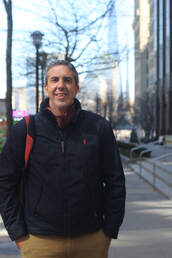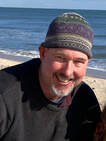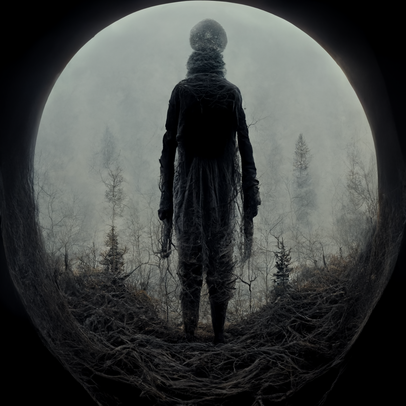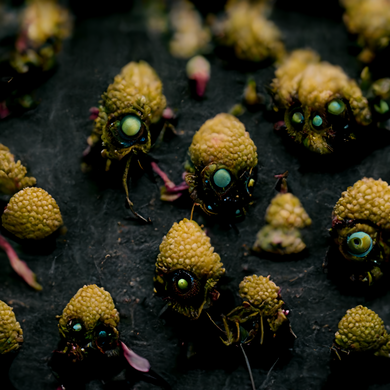|
On a bright, sunny summer day in 1788, Christopher put down his hammer, removed his apron, and walked out of the foundry. He ignored Mr. Bristle’s shouted demands that he return to work. After all, the shouting of his former employer was just another loud noise in a city that was full of them. The city seemed to have become full of sound. The hammering in the foundry was just a small part of it. There was a new mill across the road whose hundreds of identical machines produced the unholy screeching of banshee legions. And the workers who tended the machines would all pour out of the building simultaneously and fill the street with their coarse language, expressing their blasphemy at the very top of their lungs. Even the usual cacophony of schoolboys and livestock and policemen’s whistles was defeated by that infernal barrage. The air was so full of noise that Christopher was convinced that there could be no room for him, so he left his tools off to one side and walked out to find a place he could fit. He walked up the street where the mills and their legions gave way to the stately houses of the owners. But here, too, the sound of carriages and horses and—again—the infernal whistles of the law informed him it was time to move on. The street turned into a dirt road, and the post jangled past him every few hours, keeping him from the silence he craved. Birds tweeted annoyingly in trees. Once, a whole regiment went by, surely with no other purpose than to stomp its boots on the packed earth. The road went up, and his spirits rose with it. Up into the mountains, above the lakes and treeline. The birds had gone, and there seemed to be a still calm upon the land. Perhaps there was room for him there. But, upon turning a corner of the path, a herd of cattle blocked his way, and upon the lead cow… a bell. He walked off the path along the rougher, rock-strewn spines of the mounts until he came across a small ridge overlooking a tiny lagoon. It was a secluded place surrounded by mountains that blocked off the wind, and it seemed completely silent. There, Christopher rested. As he rested, he listened. Without the constant noise of life and bustle filling the air and the inside of his head, he could hear the words that could only be said in silence. He listened to the Earth and to the stars. He listened to the distant oceans and to ghosts of fallen soldiers. The voices in the silence taught him the ancient secrets of the Titans and the hidden shame of the gods. They taught him to live forever and to gain nutrition from the very air. They taught him to control the fabric of reality and to see beyond the veil of death. Christopher sat and listened to the voices and grew fat on the thin mountain air. He listened for days, years, decades. He listened for centuries and was at peace. One day, however, the shout of a hiker broke through the silence. It was miles distant and only reached the ridge on which Christopher was seated because of a fortuitous gust of wind. Its power was akin to the sound made by the flapping of a butterfly’s wing. The thunderous noise nearly killed him. He felt a searing pain in the very atoms of his body, and he was sure he would never recover. But the sound didn’t repeat itself. The wind was still, and no further interruption was carried up to his retreat. Over the next few weeks, the atoms of his body healed, and the pain receded until only the anger caused by the invasion remained. On a bright, sunny summer day in 2012, Christopher wrapped himself in a shield of silence and walked away from his ridge. He retraced his steps across the tortuous hillsides and came to the small mountain path he’d walked before. There stood not a herd of cows but a flock of sheep and a shepherd. He saw that one of the lambs had a bell. Christopher gave a silent command, and the shield around him expanded to give them the gift of silence. As he left them behind, he saw they were cold, immobile, and blessedly quiet. He walked on. Birds fell from the trees as he passed but hit the ground with no sound. The rustling of the leaves ceased to be forever. A row of army trucks on the paved two-lane that had replaced the dirt track of yore suddenly stopped. No men descended, and no men ever would. The city had grown, and the mills had spawned countless progeny. But he pushed back the noise, filling the previously cramped air with the power of eternal peace. As he walked across each intersection, the city behind him went cold and lifeless—perfectly peaceful in its lack of noise. Christopher kept walking. He walked until he’d given his gift to all the living creatures of the land and the seas and had brought absolute peace to the world. But the perfect stillness was incomplete. He listened to the voice of silence to discover what was amiss. And then Christopher, understanding, smiled. He banished the winds. And he was content.  Gustavo Bondoni is novelist and short story writer with over three hundred stories published in fifteen countries, in seven languages. He is a member of Codex and an Active Member of SFWA. His latest novel is Lost Island Rampage (2021). He has also published three other monster books: Ice Station: Death (2019), Jungle Lab Terror (2020) and Test Site Horror (2020), three science fiction novels: Incursion (2017), Outside (2017) and Siege (2016) and an ebook novella entitled Branch. His short fiction is collected in Pale Reflection (2020), Off the Beaten Path (2019) Tenth Orbit and Other Faraway Places (2010) and Virtuoso and Other Stories (2011). In 2019, Gustavo was awarded second place in the Jim Baen Memorial Contest and in 2018 he received a Judges Commendation (and second place) in The James White Award. He was also a 2019 finalist in the Writers of the Future Contest. His website is at www.gustavobondoni.com. Raymond felt the first symptoms on Saturday after eating an extra-large, stuffed-crust pizza and two pints of chocolate ice cream: a tingling rush in his stomach, a triumphant coursing of a million miniature mouths. The part of him that kept others from seeing him was now disappearing. By Monday, he had already lost six pounds. These really are miraculous little creatures, he thought, remembering Dr. Tilly’s description of the CRISPR-engineered Arachperis: “Eight mouths and a conical head for burrowing, little miners happy to excavate all that’s weighing you down.” The doctor chuckled, and Raymond noticed the protruding black tendrils of Tilly’s nose hairs. “They’ve proved efficacious for other patients,” the doctor said. At first, Raymond pictured the Arachperis as cartoons with big twinkling eyes and licking-lip mouths; an army that he might command, that would grow to love him. But Thursday arrived with another fourteen pounds dropped, and he began to have visions of miners with spinning shark-toothed mouths, furiously cutting into walls built of bacon burgers, colossal nachos, meatball carbonara, and German chocolate cake. He called Dr. Tilly to ask if this was normal. “Perfectly fine,” Dr. Tilly said. “What if they get into my heart?” “And chew through all that plaque? You would consider yourself lucky to avoid the bypass surgery.” The doctor chuckled again. “What if—“ “There’s nothing to worry about. They’re designed to live only in fat. They hate muscle, especially a vibrating muscle. Just maintain the high-fat diet, and when you’re down to 180 pounds, we’ll kill them off with the cleanser.” Raymond started Friday with two grand slam breakfasts, asking for eight extra butters, which he pressed onto his pancakes with shaking hands. He tried not to think about the cleanser, how the Arachperis had so little time left. To be enslaved and then die? To be so hungry while alive? And as he thought this, he felt a surge in his stomach—millions of suffering mouths gnashing in frenzied speed. He ordered another grand slam and a double fudge sundae. They’re going hungry, poor things. Why would I want to kill them off? The food at the pancake house was not coming fast enough, so he left and found a Burger Buster two blocks away. He began circling through the drive-thru, consuming one Double Buster meal after another. His phone vibrated. It was Tilly: “We’ve had some concerning results with one of the other patients using the same batch you are. You need to get in here immediately, and until you get here, keep feeding them.” Raymond pictured them now as addicts, their mouths slack, their eyes dilated—heartbreaking in their bottomless need. The fat wasn’t coming fast enough. He felt their agony, their misery for always being hungry. And he felt something else. They were climbing out of his stomach, creeping on their black-bristled feet. Their mouths gaping with the hunger of the world, painfully empty and growing emptier with every bite. My poor, hungry children. Seeking, he knew now, the organ that is over fifty-percent fat. The mind where he had lived alone all his life, waiting amongst feasts unending for some guests to arrive. What will it feel like? And how fast will I disappear?  Niles Tomlinson lives in the Washington DC area and teaches American Gothic fiction and writing at Georgetown University. His scholarly publications explore human/animal crossings in Poe’s “The Black Cat”, Gilman’s “The Yellow Wallpaper”, and The Ring. He loves animals, so-bad-they’re-good horror films, all things carnivalesque, and The Replacements. |
Archives
June 2024
Categories
All
|


 RSS Feed
RSS Feed